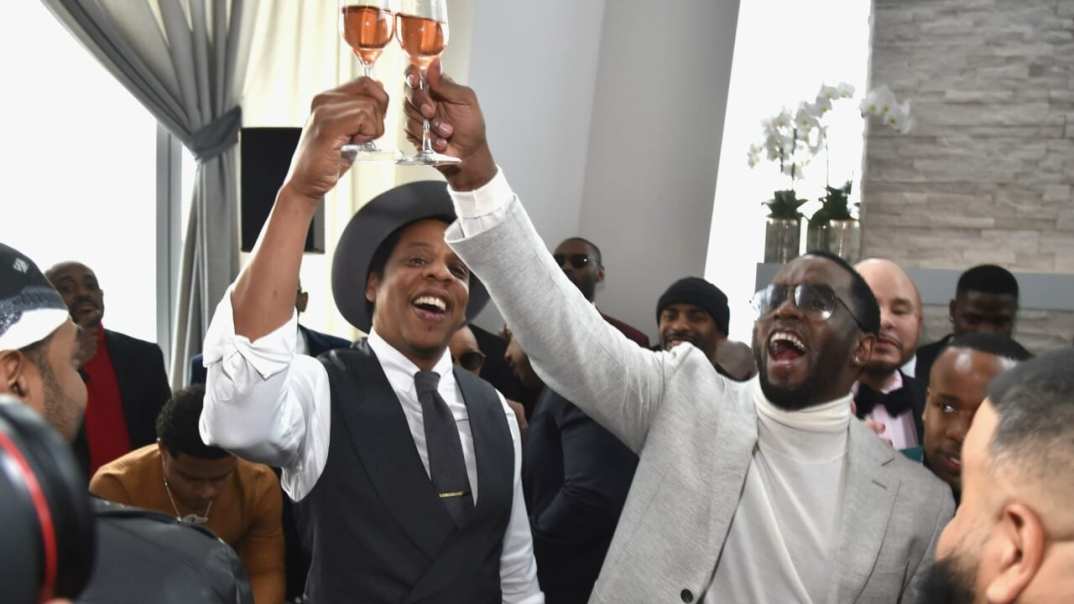Rappers DID build careers off nasty Black male stereotypes–but it’s complicated
Raven-Symoné isn't wrong, but she's not exactly right either.
Raven-Symoné isn't wrong, but she's not exactly right either.

Raven-Symoné is at the center of some drama again.
The former The View host caught heat this week for criticizing hip-hop using a reposted Instagram image of Black execs and artists at Roc Nation’s annual Grammy brunch, including JAY-Z, Steve Stoute, T.I., Diddy and others.
“A group of so-called successful Black men(minus Khalid racially) who became rich and famous from perpetuating the worst Black stereotypes to the ears and eyes of whole planet like drug dealing, pimping, murdering other Black men and disrespecting Black women,” the meme originally posted by Arrested Development’s Speech read. “I know, making observations is being a hater. Cheers.”
Speech’s caption explains his sentiments:
“#KEEPPERSPECTIVE I listen to many of these brothers art and I respect certain things about them. But it is imperative that we don’t lose sight of the simple truth – these men were CONGRATULATED by a white supremacist culture for degrading black men and women, portraying us as disposable as a cockroach within their lyrics. They taught and glorified the drug, pimp, prostitution, stripper and gang game, and led many impressionable people down a path that they have paid heavily for, while these “successful dudes got paid! This is not a Diss, it’s a reminder, that all that glitters ain’t gold! True black power is not this, its despite this!”
Symoné has since deleted her repost but not before T.I. and Trey Songz could respond to her—and, tellingly, not Speech.
“@ravensymone Our sins ain’t no greater than yours ma’am,” Tip wrote under a picture of Oscar Wilde’s famous quote: “Every saint has a past & every sinner has a future.”
“The air must be thin as hell up there on that high horse you sittin on. Somebody please let me know…WTF up wit shawty?” he captioned.
–Raven-Symoné slams rappers in post, T.I. claps back–
Why Raven Symoné ain’t wrong
First of all, Raven-Symoné (and Speech) are both right: Many of the Black men in the image have recorded music bursting with misogyny, stories of drug dealing and violence. And notice how T.I. and Songz were quick to take aim at a Black woman but not the source of the statement, which proves that the dynamic between Black men and women is still largely off balance.
Furthermore, the legend of JAY-Z runs deep from Marcy Projects to Virginia and beyond. At the height of his most braggadocious raps, he spit detailed bars about evading the Feds (“They know I’m a dope boy, they don’t have no proof”) and had little regard for women (just replay “Big Pimpin’” one time). And as, arguably, the most lauded and decorated rapper of all time, Hov’s influence is expansive and far-reaching.
In other words: He’s a role model for many of these rappers and everyday Black men who emulate his once disregard for the law and women.
The same can be said for T.I., Diddy, Yo Gotti, Jim Jones and Swizz Beatz, whose wrongs have been well-documented on wax and court records, whether it be pertaining to infidelity, street life or legal troubles from violence against other Black men.
But while it’s easy for Raven-Symoné and Speech to paint the whole of their careers (and lives, essentially) with one stroke, it’s a cheap shot to reduce these men to such a simple perspective and ignore the growth of the individuals and hip-hop.
Why Raven Symoné ain’t right either
Hip-hop is the art of storytelling set to a beat about navigating and surviving the jungles of oppression and systemic racism as best as Blacks know how—through partying, dancing, protesting, posturing, flashing money, etc.
And while, no, misogny, drug dealing and violence can’t be condoned, the men who helped inspire and make this genre global while also exhibiting personal growth cannot be whittled down to faux-successful Black men who only negatively impacted the culture.
For some, namely JAY-Z, Big Sean and Diddy, they’ve shed light on aspects that can help Blacks as a community and individually. Hov’s 4:44 album was accompanied by a series of “Footnotes,” that detailed how Black men are conditioned to exhibit certain attitudes towards women, the need for therapy and how to break those emotional cycles.
–JAY-Z apologizes to Beyoncé on new album ‘4:44’–
Diddy has pushed the throttle on #BlackExcellence and spreading love, not only by increasing his own achievements, but also by giving opportunities to other Black artists (see “The Four”). And, Big Sean’s recent raps have been overflowing with spirituality, positive thinking and how he manifests great things in his life.
Now, if those shows of maturity and change aren’t uplifting the culture, I’m not sure what Speech and Raven-Symoné want from these men.
Next steps for the culture
Hip-hop is headed in the right direction, but we do have a long way to go as a culture. Black men and boys still need to learn consent and today’s rap needs to stop glorifying trap life and pill-popping, and promote more mental health awareness, among other things.
But to lay those responsibilities at the feet of only the pictured men is not right.
We can’t disregard the chorus of rap voices, including Kendrick Lamar and J. Cole, who elevate the constructive message in music, and as long as that energy keeps circulating and causing a change reaction in other artists, what we’re not going to do is throw the baby out with the bath water.
Niki McGloster is a Maryland-based writer and co-founder of her sweat. She has written for ESSENCE, Genius, Billboard, VIBE and Teen Vogue. Follow her on Twitter at @missjournalism.
